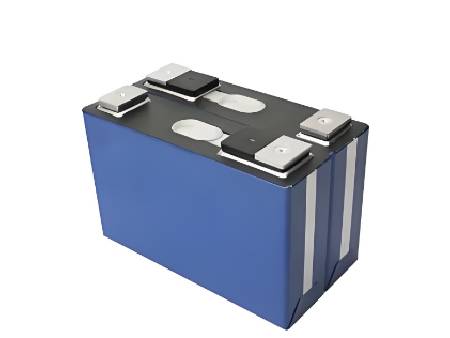Share to
The performance of lithium iron phosphate batteries in energy storage systems has a significant impact on the efficiency and stability of the system. The following are the effects of lithium iron phosphate battery performance on energy storage systems and some effective operating methods:
1. Capacity: The battery capacity determines the amount of energy that the energy storage system can store, while also affecting the system's energy storage capacity and power supply duration. Therefore, we can improve the energy storage efficiency of the system by selecting high-capacity lithium iron phosphate batteries.
2. Charging and discharging efficiency: The charging and discharging efficiency of lithium iron phosphate batteries affects the conversion efficiency of energy during the charging and discharging process. High efficiency can reduce energy loss and improve the overall efficiency of the system. By setting reasonable charging and discharging parameters to avoid overcharging or discharging issues, it can ensure that the battery operates within a safe range, thereby improving charging and discharging efficiency.
3. Cycle life: The cycle life of lithium iron phosphate batteries directly affects their service life and stability. Long cycle life can extend the service life of the system and reduce maintenance costs. In practical applications, a battery balancing management strategy can be implemented to ensure a balanced charging and discharging state between batteries, thereby extending the cycle life of lithium iron phosphate batteries.
4. Safety: The safety of lithium iron phosphate batteries has a significant impact on the safety and stability of the system. Stable performance can reduce the risks during system operation, thereby protecting the safety of the system and users. Proper charge and discharge control, temperature control, and regular inspection and maintenance are important operating methods to ensure battery performance and stable system operation.

Improve battery performance through the following measures:
1. Appropriate charge and discharge control: Based on the battery specifications and performance characteristics, set appropriate charge and discharge parameters to ensure the normal operation of the battery within a safe range and avoid overcharging or discharging situations. This can extend the lifespan of the battery.
2. Temperature control: Keep the battery working within a suitable temperature range to avoid the impact of high or low temperatures on battery performance. Scientifically and reasonably controlling temperature can improve the efficiency and reliability of batteries.
3. Balanced management: Implement a battery balancing management strategy to ensure a balanced charging and discharging state between batteries. By timely balancing the charge and discharge of each battery cell, the lifespan of the entire battery pack can be effectively extended and the overall performance of the battery pack can be improved.
4. Regular inspection and maintenance: Regularly inspect and evaluate the battery, promptly identify problems and perform maintenance to ensure battery performance and stable system operation. Regularly checking the condition of the battery and repairing or replacing faulty batteries in a timely manner can effectively prevent battery failures and improve the reliability of the battery system.
5. System monitoring: Establish a comprehensive battery management system, monitor battery parameters and performance in real time, promptly identify and handle problems. By monitoring the battery management system, changes in battery health and abnormal situations can be detected in a timely manner, and corresponding measures can be taken to ensure the safe and stable operation of the battery system.
In addition, by establishing a comprehensive battery management system, real-time monitoring of battery parameters and performance, timely detection and handling of problems, the performance of
lithium iron phosphate battery in energy storage systems can be improved. Corresponding operation and management plans need to be developed based on specific situations to meet the needs of different systems and application scenarios. Through effective operating methods, the performance of lithium iron phosphate batteries in energy storage systems can be optimized, system efficiency and stability can be improved, system lifespan can be extended, and the safe and reliable operation of the system can be ensured.

